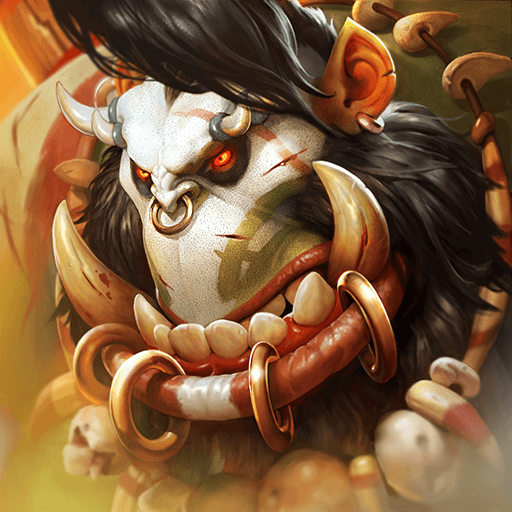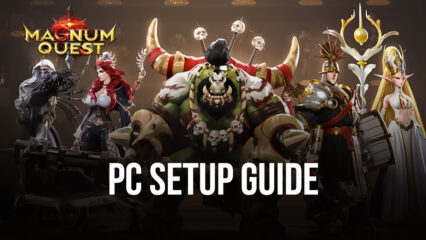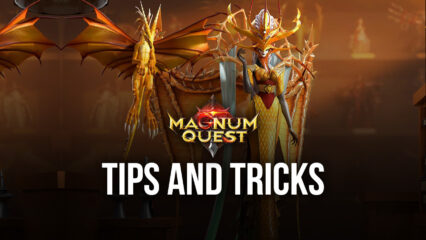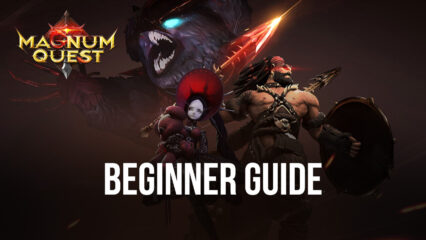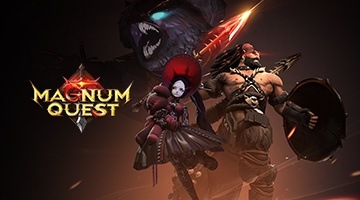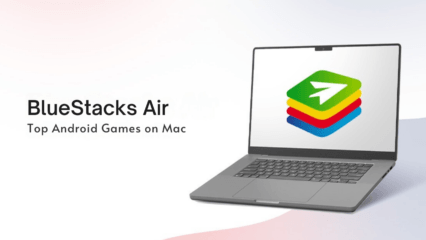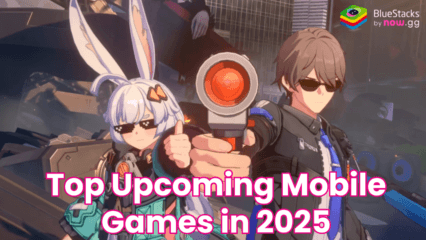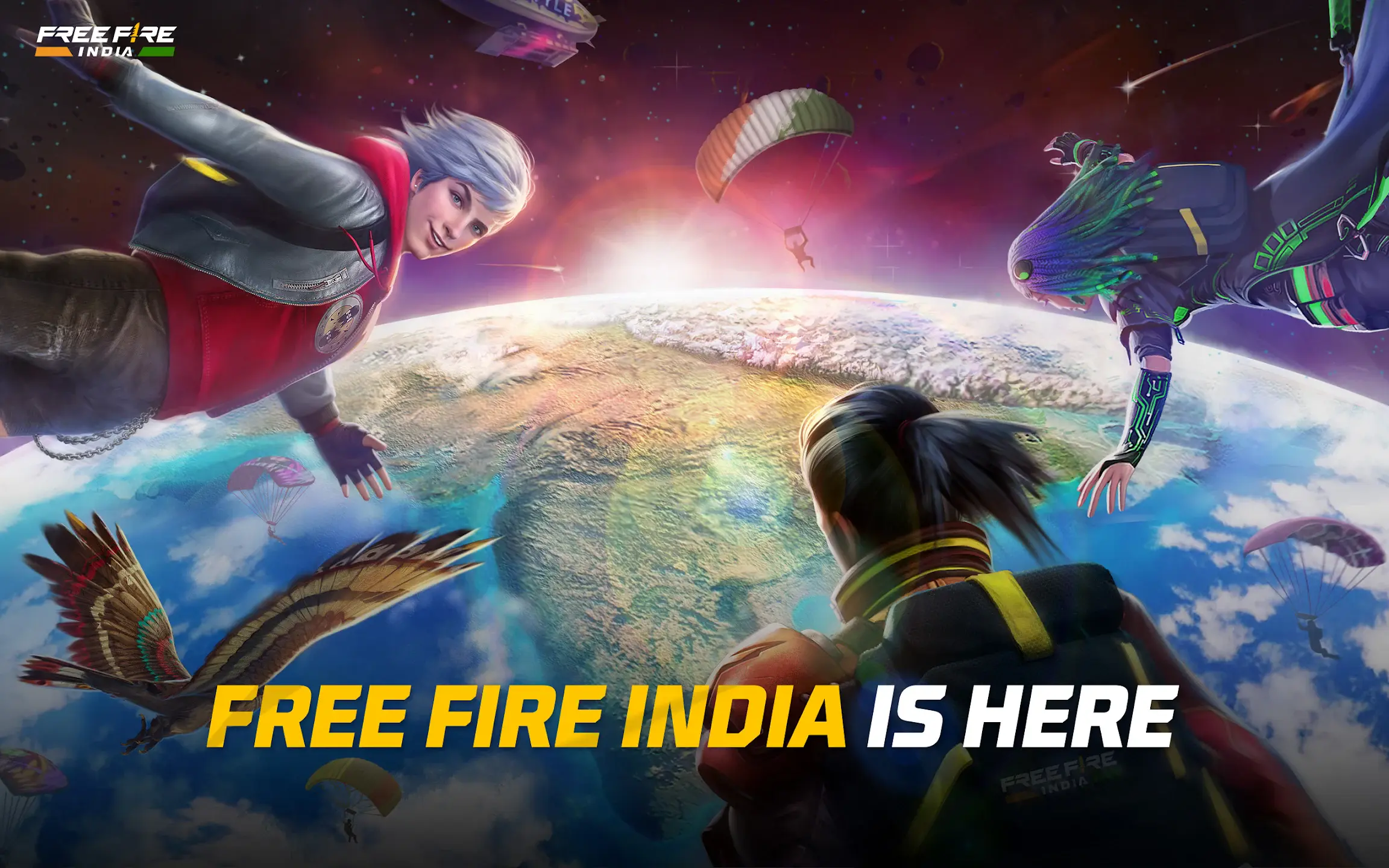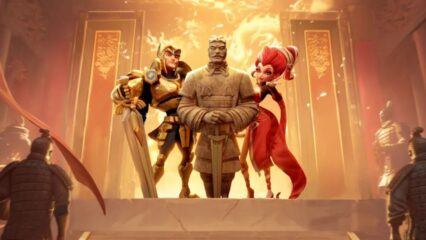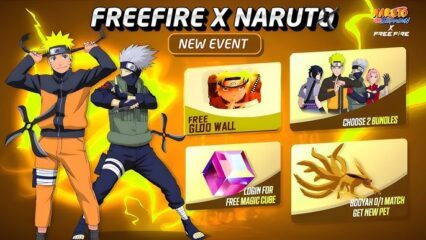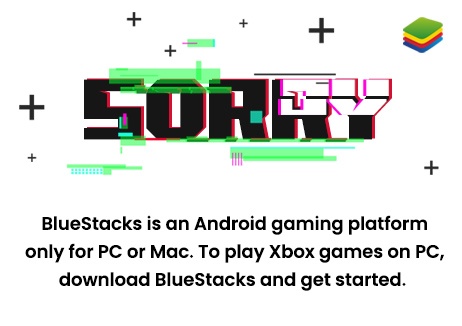Magnum Quest - A Guide to Heroes
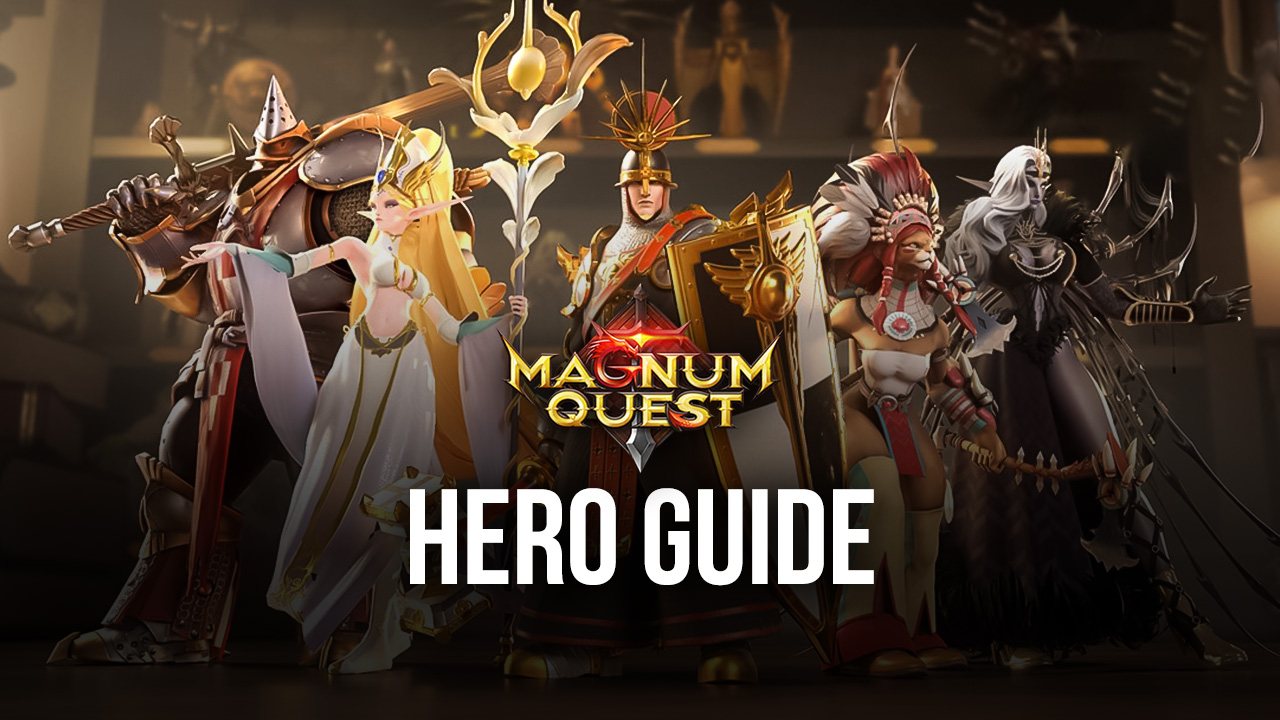
Heroes in Magnum Quest are the centerpiece to everything that happens in the game. Just like any other gacha game, players will be able to collect a myriad of interesting characters that can be placed in the team to execute combat. Since there are different characters, you can expect that each of them have unique actions, abilities, and roles that make building a team more complex than just trying to place all of the units that you like into one team without understanding the mechanics involved.
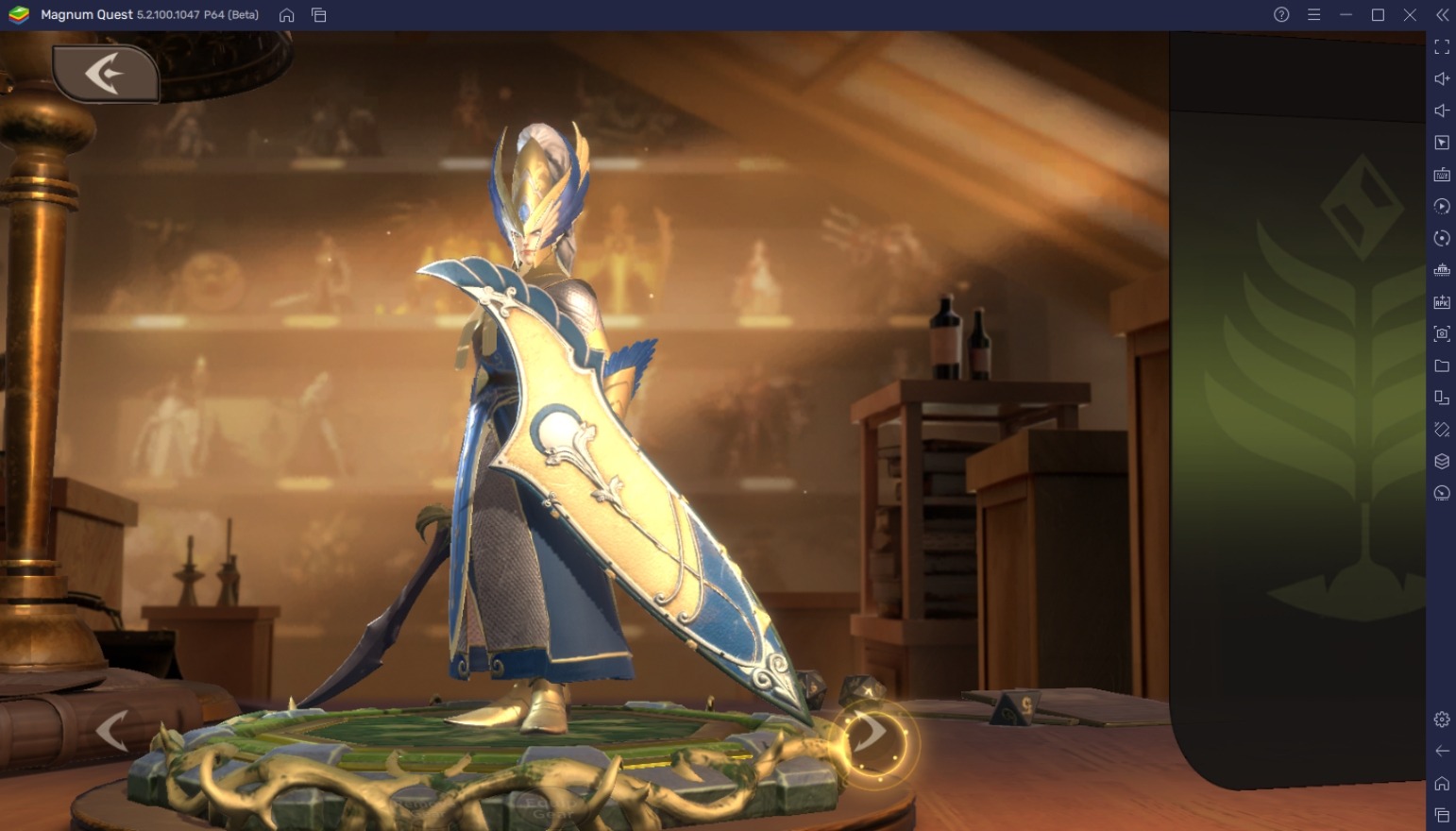
As mentioned in our Magnum Quest Beginner’s Guide, heroes can be acquired by summoning in the gacha system. Learning about how heroes are built and their relationship with each other will help players create better teams that are more competitive and able to clear higher-end content. The most important application for making your team stronger through understanding your heroes is by climbing the arena. Let’s take a look at the heroes’ different features.
Hero Factions
Hero factions are one of the game’s features that surprisingly doesn’t have a lot of explanation from Fortress, Wild, Forest, and Shadow, including the two universal factions – Divine and Abyss. The universal factions are considered members of the basic factions, contributing to the requirements for getting set bonuses in the team. It’s important for players to collect multiple characters because there are various bonuses that are activated when you have a certain number of heroes from a certain faction in a team.
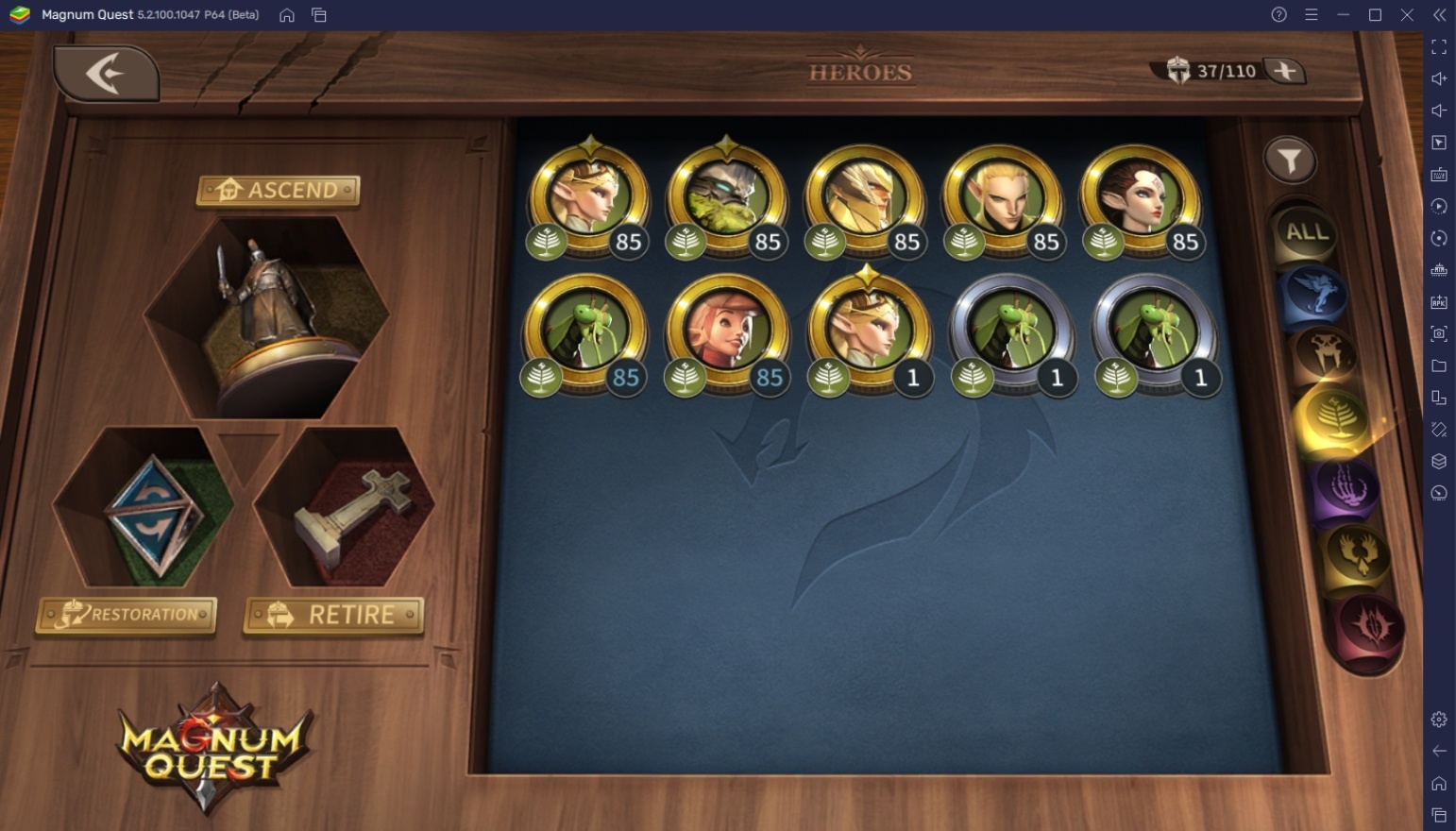
Unlike other RPG games, the bonuses do not differ depending on the faction you choose soso as to avoid creating a meta consisting of the same team composition. A player receives a bonus of +15% HP and +15 ATK when you have three members of the same faction and two members of another. Furthermore, if players only have team members consisting of one faction, the bonus is increased to +25% HP and ATK. This means that you should always try to aim to at least have the +15% bonus.
Hero Classes & Types
There are three types of heroes – Strength, Agility, and Intelligence. Strength heroes are usually the bulky characters that have a high amount of HP and good amount of attack. Agility heroes have very high attack value, but their HP is low and overall defenses are low. Intelligence heroes are the spellcasters that specialize in utility or high multi-target damage. Each hero type is important in the team and they play a specific role in the team that we like to refer to as Classes.
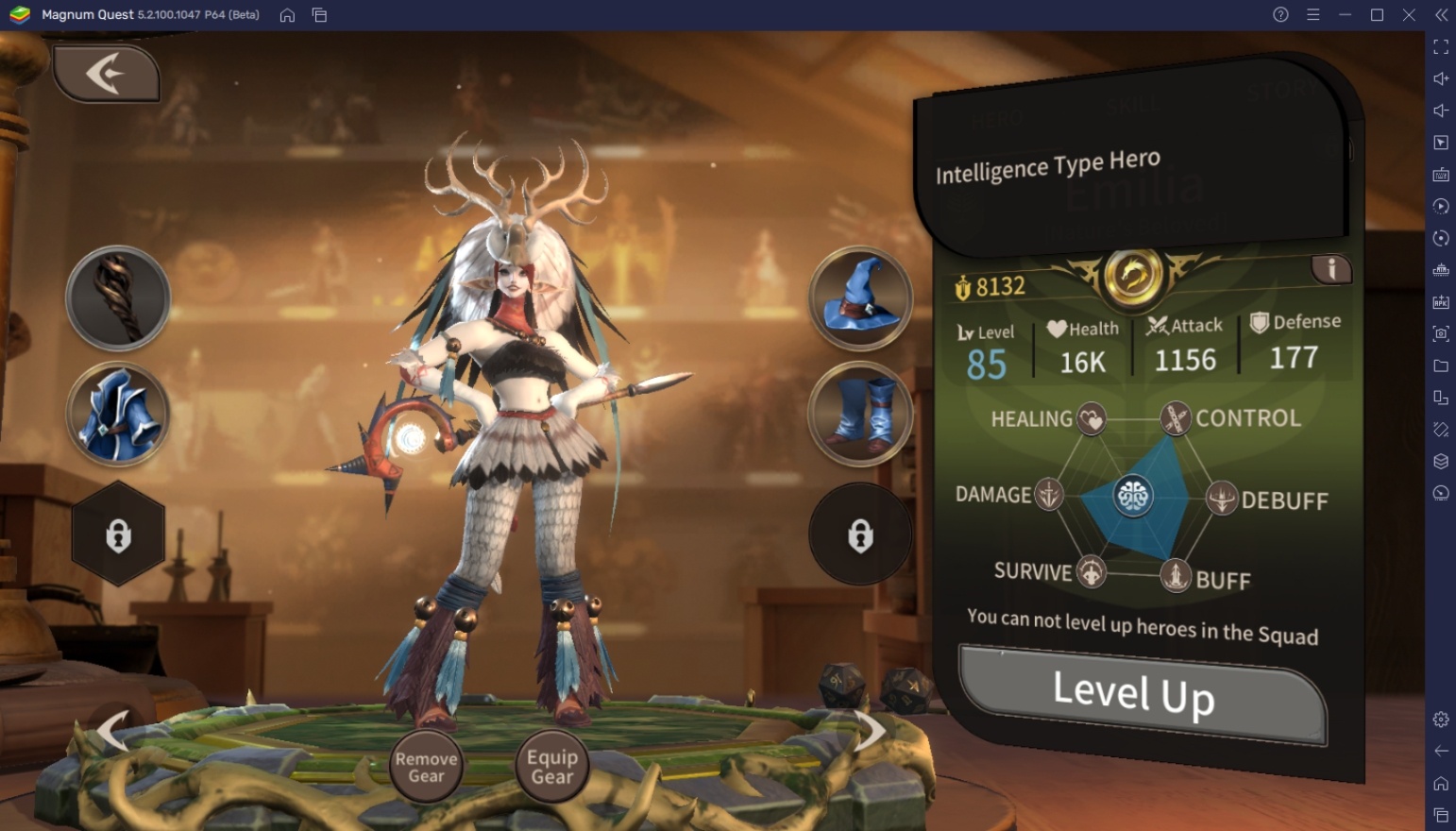
We have created a set of classes for ease of understanding – Tank, Bruiser, Assassin, Mage, Debuffer, Buffer, and Healer. A player’s team composition depends on what kind of formula they want to create, which isn’t in any way strict but the recommended lineup is having 1 Tank, 1 Healer, and the rest being any kind of DPS. Having two or more of the same unit class, aside from tank, is unnecessarily redundant as it might affect the offensive or defensive value of your team.
Rarity and Ascension
Ascension is the most important function that players need to know about if they want their favorite characters to become stronger. Every character has a base rarity; the strongest characters in the game start out as Gold-framed characters and can be ascended further. The game doesn’t punish players that have bad luck streaks since silver characters and above can be ascended (or used as ascension material) for your more important characters that you want to have in your team.
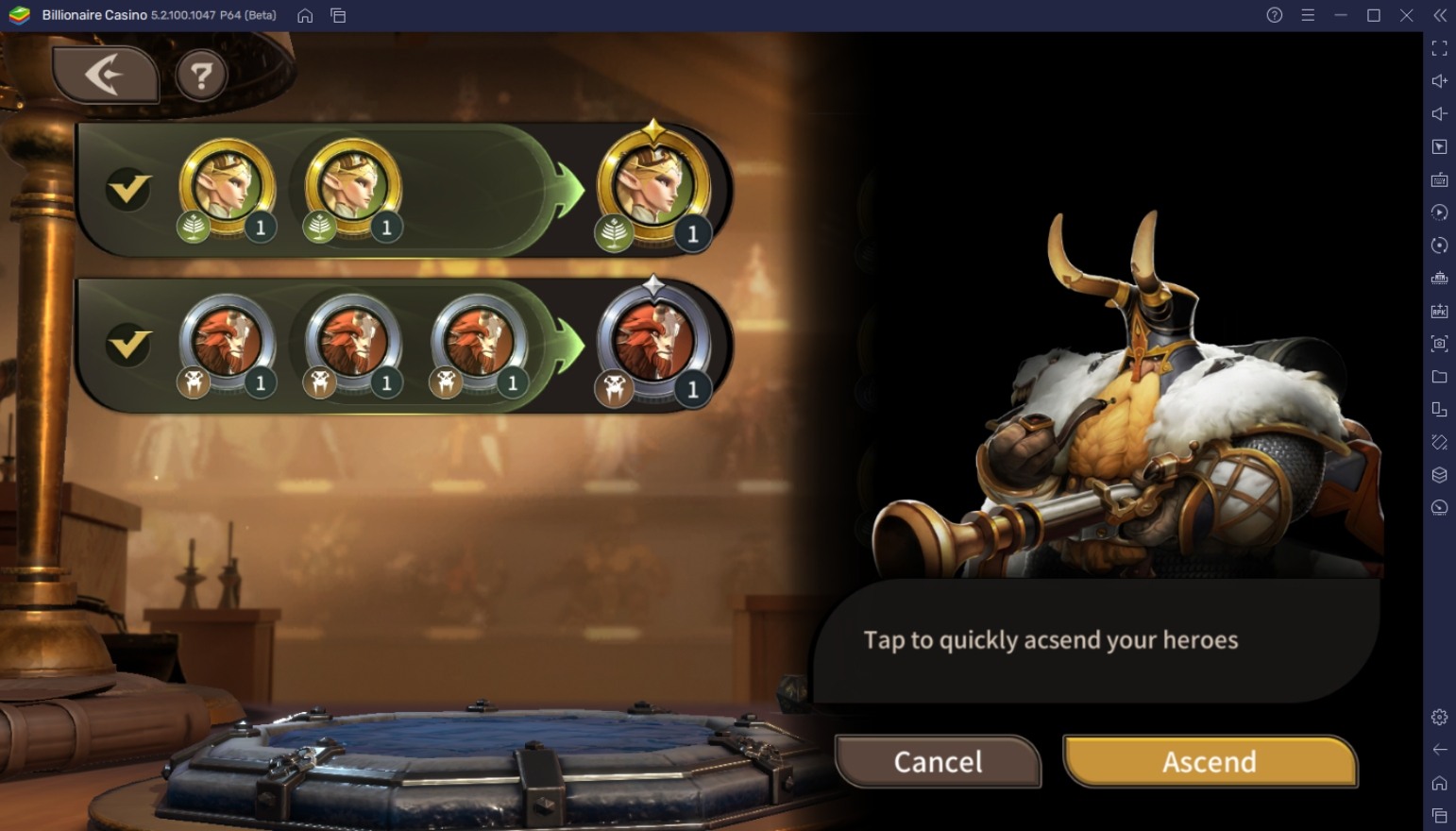
Ascension is done by combining one base character with one or more duplicates of the same characters or characters from the same faction. To ascend a character, they must be of the same rarity. Some characters require duplicates, which can be more difficult to ascend, but that shouldn’t stop you from trying to get them anyway. Ascension will increase a character’s base stats dramatically and unlock more skills and abilities based on that unit’s level.
Skills and Abilities
Speaking of skills and abilities, each character has a unique set of special moves that players need to keep in mind when building a team. Most abilities are linked to their hero class, so you’ll know whether that unit functions as a DPS, Tank, Support, or Healer. Read up on your heroes’ abilities and create a team that has effect diversity so that you don’t end up having redundant skills such as double buffs, unsackable debuffs, or the same attack patterns that will affect your overall damage output.
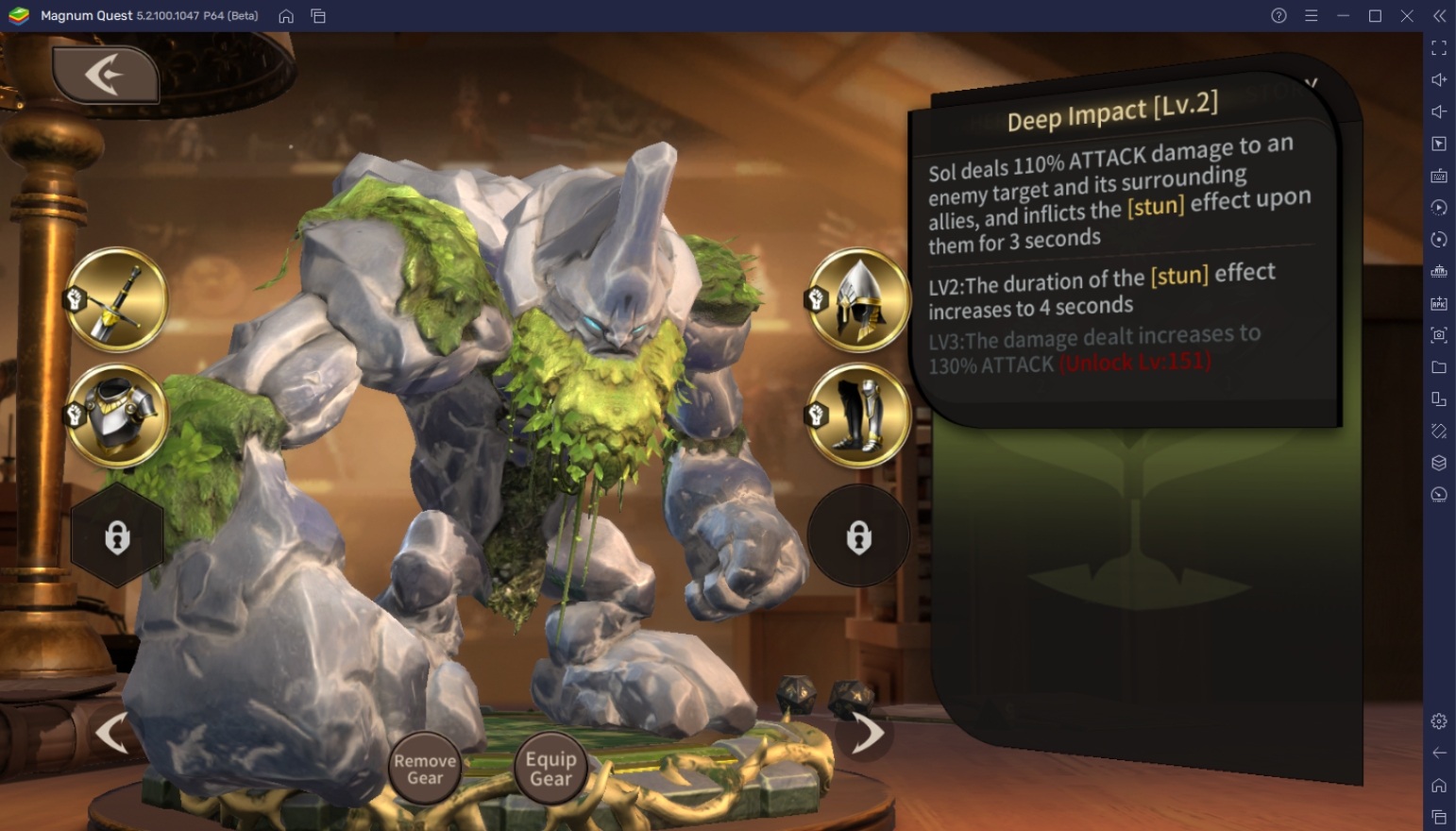
Hero abilities are unlocked by leveling up characters. The higher the unit’s level, the more passive skills they’ll be able to benefit from when fighting in battle. Active abilities are innate to the character once they are acquired. Passive abilities usually add additional effects to a unit’s attacks or upgrade the values on an existing skill or ability. Both play a big part in the potential of a unit, so learning about how they work will greatly benefit the player as some abilities synergize well with each other.
Hero Stats
Stats are the most important quantifier of a unit’s worth. There are basic stats and advanced stats. The basic stats are health, attack, and defense, whereas advanced stats can be seen by clicking on the hero’s information tab. All of these stats are important, but it is the advanced stats that play the biggest role in combat. Advanced stats can be increased by leveling the hero up, unlocking skills that influence them, or equipping runes and artifacts that can increase those values.
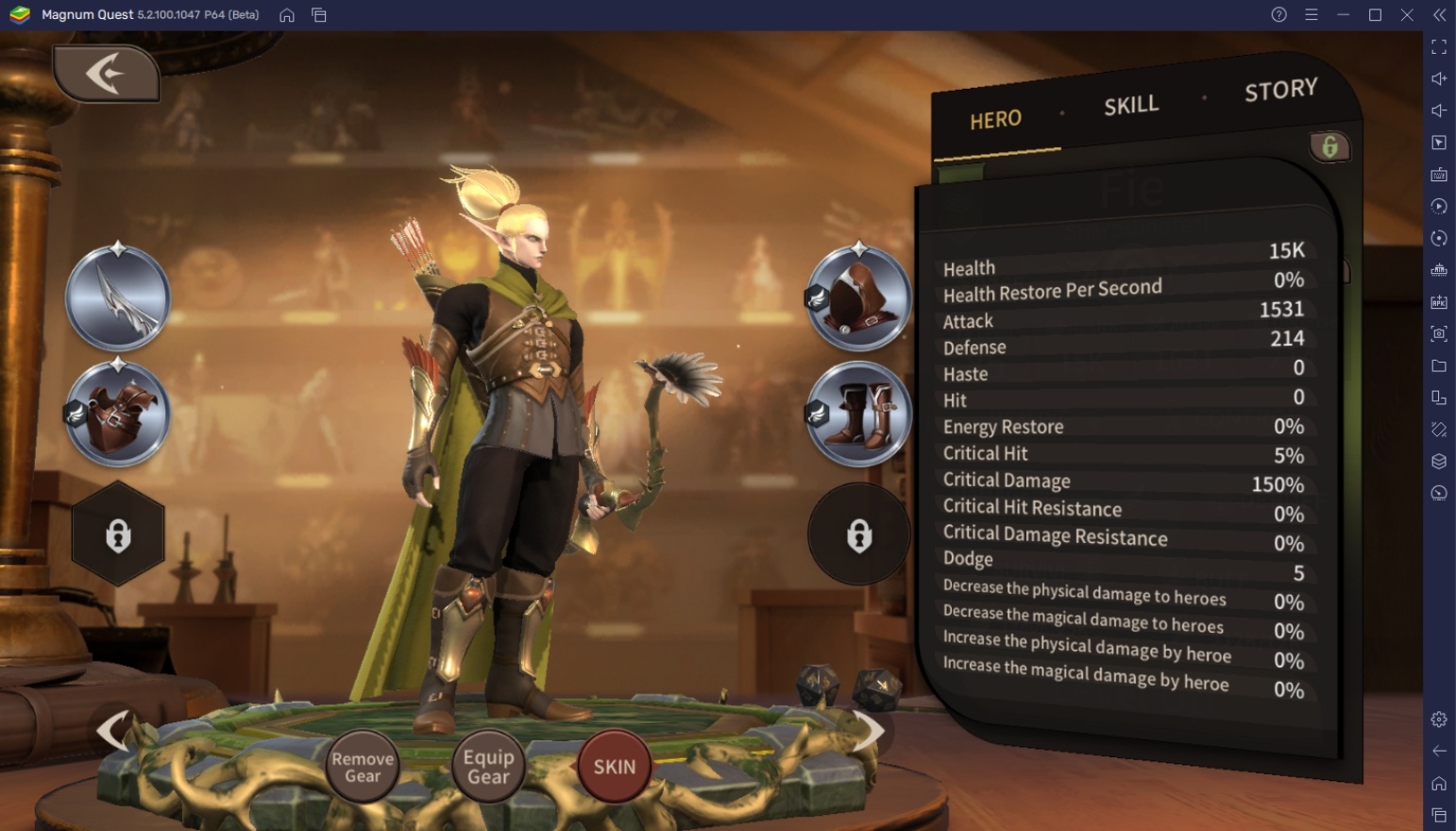
Basic stats are the ones that can be increased by external means such as gear. Some equipment has set values so equipping up to 4 of the same item type will increase the unit’s stats by a huge margin. There’s also the aforementioned faction bonus, which depends on how many types of characters from the same faction that you have in your team. The higher your team’s stats, the higher the power level becomes, which is the value that you’ll need to determine if you can beat an opponent or content.

